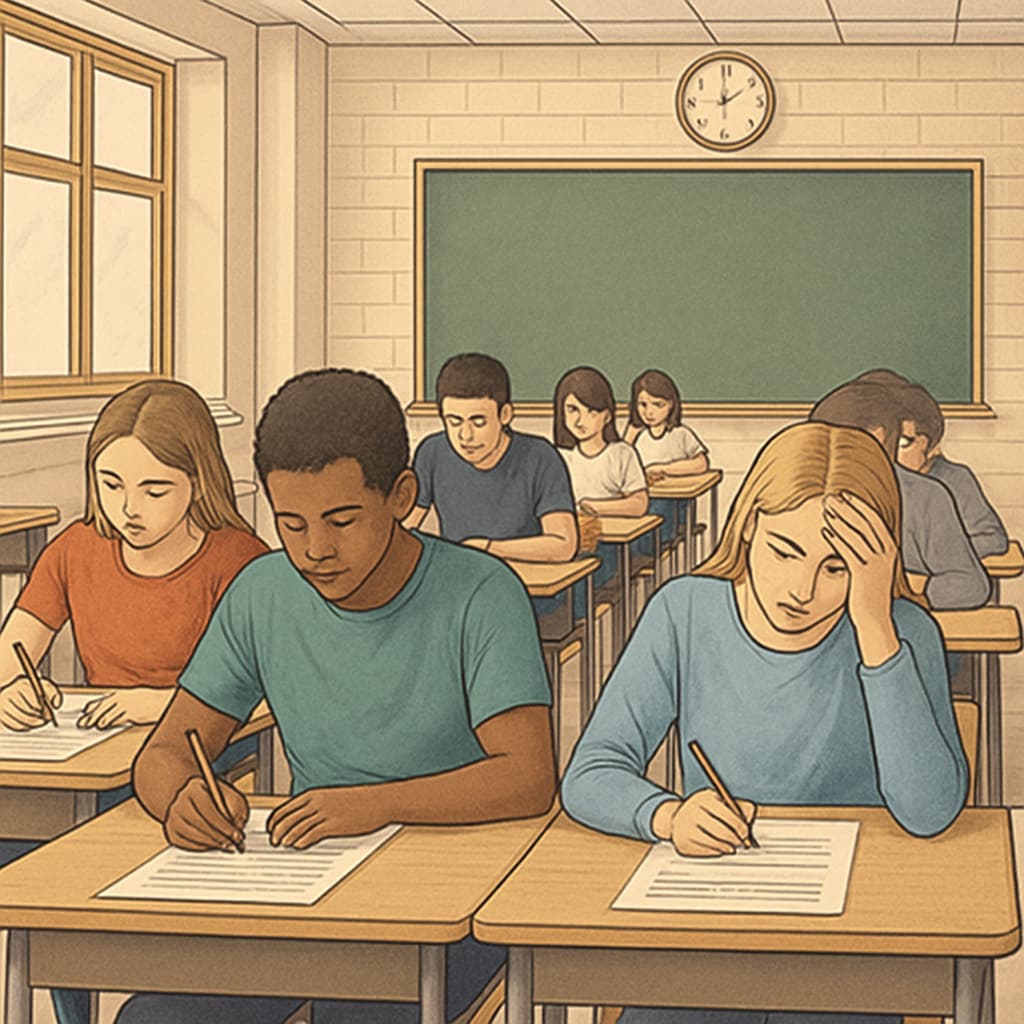The pressure surrounding GCSE results, academic anxiety, future prospects is a growing concern for students across the UK. As these exams are often seen as pivotal in shaping future opportunities, many young individuals experience significant stress and fear of failure. But do GCSE grades truly define a student’s potential or determine their life trajectory? This article delves into the psychological impact of academic performance anxiety, the societal factors exacerbating this issue, and the urgent need for a reimagined educational system that values more than just grades.
Understanding the Weight of GCSE Results
GCSE results serve as an important milestone in the British education system, often influencing access to further education, career paths, and social perceptions. However, the immense focus on grades can overshadow the broader value of education. According to Wikipedia’s analysis of GCSE, these exams aim to assess a student’s knowledge and skills across various subjects, but they often fail to recognize individual talents and non-academic strengths. As a result, students may feel reduced to mere numbers on a score sheet.

For many, this emphasis on grades has led to heightened academic anxiety—a condition characterized by excessive worry about underperforming or disappointing others. The National Health Service (NHS) reports that teenagers in the UK are increasingly seeking mental health support during exam seasons, illustrating the growing mental toll of high-stakes testing.
Academic Anxiety: A Societal Issue
Academic anxiety is not solely rooted in the education system; it is also fueled by societal expectations and cultural norms. Parents, educators, and even peers may unintentionally contribute to this pressure by equating success with academic achievement. For example, students often internalize messages such as “top grades equal top opportunities,” leaving little room for alternative paths to success.

In addition, social media plays a role in amplifying this anxiety. Platforms frequently showcase success stories, leading students to compare their achievements with others—often unrealistically. As a result, they may feel inadequate or overwhelmed by the perceived need to excel academically.
Redefining Future Prospects Beyond Grades
While GCSE results are undeniably significant, they should not be the sole determinant of a student’s future. Success can be achieved through various avenues, including vocational training, apprenticeships, creative pursuits, and entrepreneurial ventures. According to Britannica’s insights on education, a more inclusive evaluation system could help students explore diverse talents and career options that align with their passions.
To reduce academic anxiety and broaden opportunities, schools and policymakers should consider adopting holistic assessment methods. These could include:
- Portfolio-based evaluations to highlight creative and practical skills
- Student-led projects that demonstrate problem-solving abilities
- Mentorship programs to guide career exploration beyond traditional academia
- Mental health resources integrated into school curriculums
By shifting the focus from grades to personal development, students can feel empowered to pursue their interests without undue fear of failure.
Conclusion: The Need for a Balanced Approach
GCSE results, academic anxiety, future prospects are deeply interconnected, but they need not define a student’s entire life. While grades play a role in opening doors to certain opportunities, they are only one piece of the puzzle. Parents, educators, and policymakers must work together to create an environment that values individual potential, celebrates diverse talents, and prioritizes mental health over academic perfection. A balanced approach will not only reduce anxiety but also equip students with the resilience and confidence needed to thrive in a constantly changing world.
Readability guidance: This article uses concise paragraphs, active voice, and accessible language to ensure clarity. Lists and examples are employed to simplify complex ideas, while transition words enhance flow and coherence.


